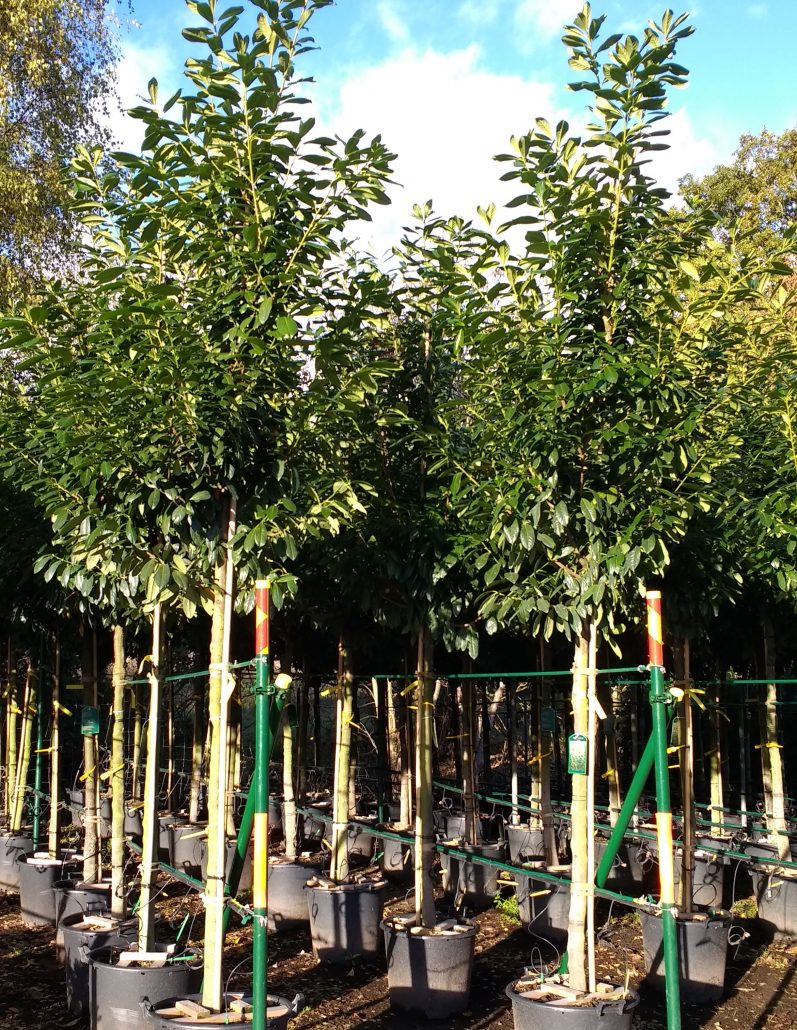These shrubs tend to grow tall and develop thick foliage, making them well suited for promoting privacy and banishing pests. Plant a mixture of prickly plants for security, and flowering climbers for color.
Living Fence Plants, Plant leather flower vines in full sun or part shade. Privets are flowering semievergreen shrubs and.

Hedges sited along contours can reduce rainfall erosion on slopes. Boxwood shrubs are some of the most popular plants for growing a living fence. Eastern hemlocks ( tsuga canadenesis ) are best known as forest trees that reach enormous heights (60 feet or more). Whatever type you choose, live fences support ecological diversity.
Eastern hemlocks ( tsuga canadenesis ) are best known as forest trees that reach enormous heights (60 feet or more).
Living fences are windbreaks, which reduce soil drying, wind erosion, and stress on livestock or crop plants, thus increasing yields. Unlike built or “hardscape” fences made from materials such as wood, iron or chain link, a living fence is made from trees, shrubs or other plants in order to create a natural barrier, or “softscape” barrier. Eastern hemlocks ( tsuga canadenesis ) are best known as forest trees that reach enormous heights (60 feet or more). A live impregnable hedge, reinforced with barbed wire, is inexpensive compared to a boundary wall and if appropriately maintained looks better. Privets are flowering semievergreen shrubs and. Here are the best flowering hedge plants you can grow in india live fence plants in india 1.
 Source: naturalbuildingblog.com
Source: naturalbuildingblog.com
There are many reasons why arborvitae is among the most popular plants for a living privacy fence. Results are not instant, but the low price makes this a good choice for a long boundary in an informal or wildlife garden. However, you should be aware there are some drawbacks to this style of fence. The hydrangeas are a fantastic living.
![]() Source: beesandroses.com
Source: beesandroses.com
You can buy the shrubs or plants at the height that you want, but they’ll still have to grow together. A tall solid fence can block views into a garden, but it can also make the space feel confined. The following are some of the most ideal plants, shrubs, and trees for a living fence: But be sure to confirm.
 Source: pinterest.com
Source: pinterest.com
The hydrangeas are a fantastic living fence and also have different colors. Whatever type you choose, live fences support ecological diversity. This style of fence invites pollinators and birds to your property. If you find the concept of an artificial fence too arbitrary, then you should try to �plant� your fence instead. Following are the top plants that can be.
 Source: backyardscape.com
Source: backyardscape.com
Privet can be an effective and extremely affordable living fence. Elephants bees kenya from elephantsandbees.com. Boxwood shrubs are some of the most popular plants for growing a living fence. February 01, 2022 woman with a flower. For most living fences, they might take a little time to fill out.
 Source: pinterest.com
Source: pinterest.com
The evergreen foliage consists of small shiny oval leaves and densely growing branches. This style of fence invites pollinators and birds to your property. That’s where shrubs come in—they can form a living fence that changes through the seasons. For most living fences, they might take a little time to fill out. These planted perimeters look beautiful and can convey.
 Source: naturebring.com
Source: naturebring.com
Living fences are effective in providing wind protection, keeping unwanted guests out, providing privacy, and can also be lighter on your wallet. There are many reasons why arborvitae is among the most popular plants for a living privacy fence. Finally, there are common plants that have the potential for use in living privacy fences that nosy neighbor will not be.
 Source: pinterest.com
Source: pinterest.com
Boxwood shrubs are some of the most popular plants for growing a living fence. But be sure to confirm with a local garden center that a specific plant is appropriate for your yard. Plant leather flower vines in full sun or part shade. Here are the best flowering hedge plants you can grow in india live fence plants in india.
 Source: goodsgn.com
Source: goodsgn.com
Living fence is a broad category that may be unfamiliar to many of us. Yuriy brykaylo/alamy stock photo) these tall evergreen shrubs are one of the best living fence plants for a reason. That’s where shrubs come in—they can form a living fence that changes through the seasons. Living fences are effective in providing wind protection, keeping unwanted guests out,.
 Source: thespruce.com
Source: thespruce.com
Following are the top plants that can be used as hedges in the live fence: If you want to save a little money, then you can get the smaller versions of the plants and then wait for them to grow to your desired height. A tall solid fence can block views into a garden, but it can also make the.
 Source: pinterest.com
Source: pinterest.com
Confirm that the variety you select will grow to the desired height—some varieties of privet grow to only four feet, while others reach eight, 10 or beyond if not kept pruned. Living fences are windbreaks, which reduce soil drying, wind erosion, and stress on livestock or crop plants, thus increasing yields. Because it is a climbing plant, a sturdy structure.
 Source: pinterest.com
Source: pinterest.com
Elephants bees kenya from elephantsandbees.com. You can make a living fence out of many different types of trees and shrubs, from the osage orange tree of midwestern us states, to certain cactus varieties. If you want to save a little money, then you can get the smaller versions of the plants and then wait for them to grow to your.
 Source: nl.pinterest.com
Source: nl.pinterest.com
Privets are flowering semievergreen shrubs and. These gorgeous fence line plants are flowering vines that quickly grow on a wooden fence. Fencing is essential in a private house. Privet, one of the most ubiquitous plants used in natural fencing, encompasses a group of about 50 species of shrubs and small trees. Its thick evergreen foliage creates a dense hedge when.
 Source: gardeningetc.com
Source: gardeningetc.com
See more ideas about evergreen plants, backyard landscaping, living fence. Plant leather flower vines in full sun or part shade. The following are some of the most ideal plants, shrubs, and trees for a living fence: Living fences are windbreaks, which reduce soil drying, wind erosion, and stress on livestock or crop plants, thus increasing yields. Unlike built or “hardscape”.
 Source: pinterest.com.au
Source: pinterest.com.au
Plant a mixture of prickly plants for security, and flowering climbers for color. A living fence can be an informal hedgerow, a row of evergreens or a carefully trained espalier. The following are some of the most ideal plants, shrubs, and trees for a living fence: The evergreen foliage consists of small shiny oval leaves and densely growing branches. Unlike.
 Source: coolcreativity.com
Source: coolcreativity.com
Eastern hemlocks ( tsuga canadenesis ) are best known as forest trees that reach enormous heights (60 feet or more). Now that you know how to plant a living fence using vines, you can start to beautify your chain link fence. Living fences are effective in providing wind protection, keeping unwanted guests out, providing privacy, and can also be lighter.
 Source: pinterest.com
Source: pinterest.com
They produce multiple branches from the base of the plant. These planted perimeters look beautiful and can convey a the following plants. Now that you know how to plant a living fence using vines, you can start to beautify your chain link fence. Privet, one of the most ubiquitous plants used in natural fencing, encompasses a group of about 50.
 Source: goodsgn.com
Source: goodsgn.com
For most living fences, they might take a little time to fill out. That’s where shrubs come in—they can form a living fence that changes through the seasons. February 01, 2022 woman with a flower. You can buy the shrubs or plants at the height that you want, but they’ll still have to grow together. Also known as thuya or.
 Source: livingfence.com
Source: livingfence.com
If you find the concept of an artificial fence too arbitrary, then you should try to �plant� your fence instead. If you want to save a little money, then you can get the smaller versions of the plants and then wait for them to grow to your desired height. A tall solid fence can block views into a garden, but.
 Source: digsdigs.com
Source: digsdigs.com
You can plant boxwood living fences for small border hedgerows or large privacy screens. Live barriers on the other hand are completely made up of trees or shrubs that are planted without much spacing between them along the property lines. Privet, one of the most ubiquitous plants used in natural fencing, encompasses a group of about 50 species of shrubs.
 Source: homestead-and-survival.com
Source: homestead-and-survival.com
But be sure to confirm with a local garden center that a specific plant is appropriate for your yard. Privets are flowering semievergreen shrubs and. Plant leather flower vines in full sun or part shade. Unlike built or “hardscape” fences made from materials such as wood, iron or chain link, a living fence is made from trees, shrubs or other.
 Source: mymove.com
Source: mymove.com
Living fences are effective in providing wind protection, keeping unwanted guests out, providing privacy, and can also be lighter on your wallet. Now that you know how to plant a living fence using vines, you can start to beautify your chain link fence. That’s where shrubs come in—they can form a living fence that changes through the seasons. Privet, one.
 Source: pinterest.com
Source: pinterest.com
If you find the concept of an artificial fence too arbitrary, then you should try to �plant� your fence instead. These shrubs tend to grow tall and develop thick foliage, making them well suited for promoting privacy and banishing pests. Fencing is essential in a private house. A living fence can be an informal hedgerow, a row of evergreens or.
 Source: pinterest.com
Source: pinterest.com
They produce multiple branches from the base of the plant. Privets are flowering semievergreen shrubs and. You can plant boxwood living fences for small border hedgerows or large privacy screens. But be sure to confirm with a local garden center that a specific plant is appropriate for your yard. Privet, one of the most ubiquitous plants used in natural fencing,.
 Source: pinterest.com
Source: pinterest.com
A living fence is a type of fence made of living plants, trees, or shrubs. Because it is a climbing plant, a sturdy structure like a picket fence is the perfect place for them to grow. Thus, you must collect enough information regarding that particular pitcher plant species, that you wish to grow. While the seeds are technically edible and.
 Source: gallerylivefence.blogspot.com
Source: gallerylivefence.blogspot.com
Plant a mixture of prickly plants for security, and flowering climbers for color. Boxwood shrubs are some of the most popular plants for growing a living fence. Namely, you must prune certain varieties of plants to. Unlike built or “hardscape” fences made from materials such as wood, iron or chain link, a living fence is made from trees, shrubs or.








